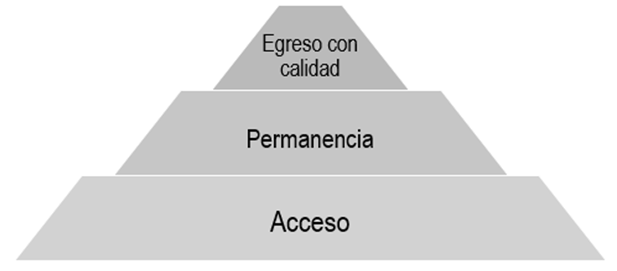Access, permanence and graduation of students with disabilities in Cuban higher education
Main Article Content
Abstract
The issue being addressed is a priority for the world and for Cuba because among the most vulnerable sectors are people with disabilities, even though there is a political will to create a society that is increasingly inclusive, equitable, participatory and with learning opportunities for all throughout life. This research is the result of a bibliographic study of the laws, regulations and resolutions issued in the national context, as well as the phases proposed by (Molina, 2010) to develop the process of inclusion of students with disabilities in Cuban Higher Education: access, permanence and graduation with quality. It lays the theoretical and methodological foundations for the implementation of the international Erasmus + project "Promoting accessibility of students with disabilities to higher education in Cuba, Costa Rica and the Dominican Republic / ACCESS. In Cuba, since the Constitution of the Republic, people with disabilities have equal opportunities and education is a right for all, which is why the Central State Bodies establish regulations related to the Attention to Disability. Recently, the Ministry of Higher Education issued a new resolution to guarantee the full training of students with disabilities in order to improve, follow up and monitor the comprehensive care and access of people with disabilities to Higher Education, that is why the Agrarian University of Havana (UNAH), issued the Rectoral Resolution No. 59 / 2021 which establishes the POLICY of the Ministry of Higher Education. 59 / 2021 which establishes the POLICY FOR INTEGRAL ATTENTION TO STUDENTS WITH DISABILITIES IN UNAH and is elaborated taking into account the three fundamental phases to develop the process of inclusion of students with disabilities in Higher Education.
Article Details

This work is licensed under a Creative Commons Attribution-NonCommercial 4.0 International License.
Los autores que publican en esta revista están de acuerdo con los siguientes términos:
- Los autores conservan los derechos de autor y garantizan a la revista el derecho de ser la primera publicación del trabajo al igual que licenciado bajo unaCreative Commons Attribution-NonCommercial 4.0 Unported License esto significa que se permite su copia y distribución por cualquier medio, siempre que se mantenga el reconocimiento de sus autores y no se haga uso comercial de las obras. El envio de manuscritos, el procesamiento y la publicación no ofrecen ningún coste a los autores, es totalmente gratis.

This journal is licensed under a Creative Commons Attribution-NonCommercial 4.0 Unported License.
References
Ainscow, M. (2008). Understanding the development of inclusive schools. Londres: Routledge Falmer Press.
Bell, R. (2019). Comprensión del ciclo de la inclusión educativa en la Educación Superior ecuatoriana. Ecuador. http://doi.org/10.15359/ree.24-1.4
Luque, D. J. y Rodríguez, G. (2008). Alumnado universitario con discapacidad: Elementos para la reflexión psicopedagógica. REOP. Revista Española de Orientación y Psicopedagogía, 19(3), 270-281. Recuperado de http://www.redalyc.org/html/3382/338230780002/
Ministerio de Educación Superior (2018). Resolución No. 02/18 Reglamento de Trabajo Docente y Metodológico. La Habana: Pueblo y Educación.
Ministerio de Educación Superior (2021). Resolución No. 89/21 Resolución Sobre la atención integral y el acceso de personas con discapacidad a la Educación Superior. La Habana.
Ministerio de Justicia (2019). Constitución de la República de Cuba. La Habana: Ed. Política.
Molina, R. (2010). Educación Superior para Estudiantes con Discapacidad. Revista de Investigación, 95-115. Obtenido de https://dialnet.unirioja.es/servlet/articulo?codigo=3427619
Salinas, M., Lissi, M.-R., Medrano, D., Zuzulich, M.-S. y Hojas, A.-M. (2013). La inclusión en la Educación Superior: Desde la voz de estudiantes chilenos con discapacidad. Revista ibero-americana de educação, 63, 77-98. doi: https://doi.org/10.35362/rie630502
Zulaica, F. (2012). La integración académica del estudiante de nuevo ingreso. En Seminario Estrategias de integración para estudiantes universitarios de nuevo ingreso. Cátedra UNESCO de Gestión y Política Universitaria. Universidad Politécnica de Madrid.
